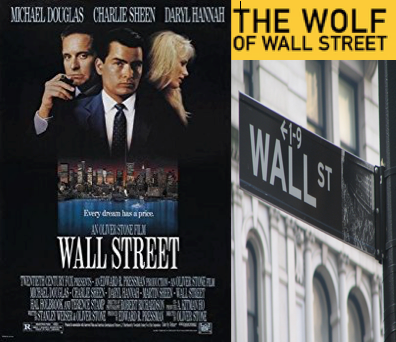Movies lose their ability to provide social consciousness about weary consumer world
May 1, 2018
The Dow Jones Industrial Average is a way to predict if the market is doing good or bad. Recently the market hasn’t been as strong as it has been since the crash of the stock market in 2008. Certain stocks play a role in this measurement. None is more prominent than the multinational corporation, Berkshire Hathaway.
Berkshire Hathaway’s president, chairman of the board, and CEO has led the company to a strong place in the world economy. In order to understand the measurement that they play on the stock market first know that Berkshire Hathaway has two stocks. Berkshire Hathaway A (BRK.A) is a very expensive stock with one share costing around $300,000 dollars, and Berkshire Hathaway B (BRK. B) is a relatively cheaper stock with one share costing around $200 dollars.
Since the crash in 2008, many films have dealt with both the ramifications and the causes of the crash. The one movie that made this completely understandable for people is The Big Short. While some people may not understand the entire chain reaction effect that housing crash had on the global market, this movie had short scenes that broke the fourth wall in order to use the surroundings as well as celebrities to make sure people understood how the crash.
Movies usually provide some kind of means of stimulating the collective consciousness but now movies are more less becoming the same, if not, attempting to make money off of a similar concept from years prior. One area in which people have always been able to find some guidance from film is the world of finance.
Enticing tales usually filled with torrid stories of sexual affairs, copious drug use, insane amounts of confidence, and the inside of how these people managed to get away with the scams that made them famous. This all stems from the famous 1987 crime drama, Wall Street, which coined the famous line, “Greed is good”. Telling the story of Bud Fox’s mentorship with the powerful stockbroker, Gordon Gekko. One writer who is able to point out how this could work is Douglas Rushkoff.
In chapter two of Rushkoff’s book, Life Inc., he shows just how wealth has been accumulated or at least what can be perceived as accumulating wealth. He starts off talking about Donald Trump when he was more into real-estate development than winning presidential elections. People were going crazy to discover what can make them wealthy or better yet, what can make them like a corporation.
One interesting point that he brings up is the possible thoughts of Alan Greenspan. Rushkoff writes, “It’s hard to know whether Greenspan is simply hawking his book or attempting to salvage a housing market that went bad under his watch.” The global economic meltdown of 2008 was something that really demonstrated the United States dependence on corporations and some of the institutions that assisted in the housing market crash.
Rather than let many corporations and banks fail, the Federal Government bailed them out and insisted that they be given a chance to redeem themselves. However, in the book, A Colossal Failure of Common Sense, another factor was in the mix that helped create a shaky market, Bill Clinton repealing the Glass-Steagall Act. This act was instituted after The Great Depression and was only repealed because Citibank went through with a business deal that went against that act. In the sake of keeping the corporations and other large banking institutions happy, the act was repealed which led to what The Newsroom character Sloan Sabbith describes as,” Now Gordon Gekko can use George Bailey’s bank balance to make a bet.”
Not many movies are able to raise the collective consciousness about certain issues and still be great films. One example of this would be the semi-lackluster movie The Post. This movie dealt with the events surrounding the Washington Post’s decision to publish the Pentagon Papers. Meryl Streep and Tom Hanks, despite their best efforts, don’t really make this movie appealing to moviegoers, but at the same time do provide a good analysis of how far journalism has come in a Trump era.
When it comes to the consumer culture, there aren’t many movies that have been able to delve into the world of consumer culture that isn’t a documentary. People want to learn and be entertained and with the human attention span decreasing gradually, movies may need to remember the roles they play in society or face becoming obsolete.





